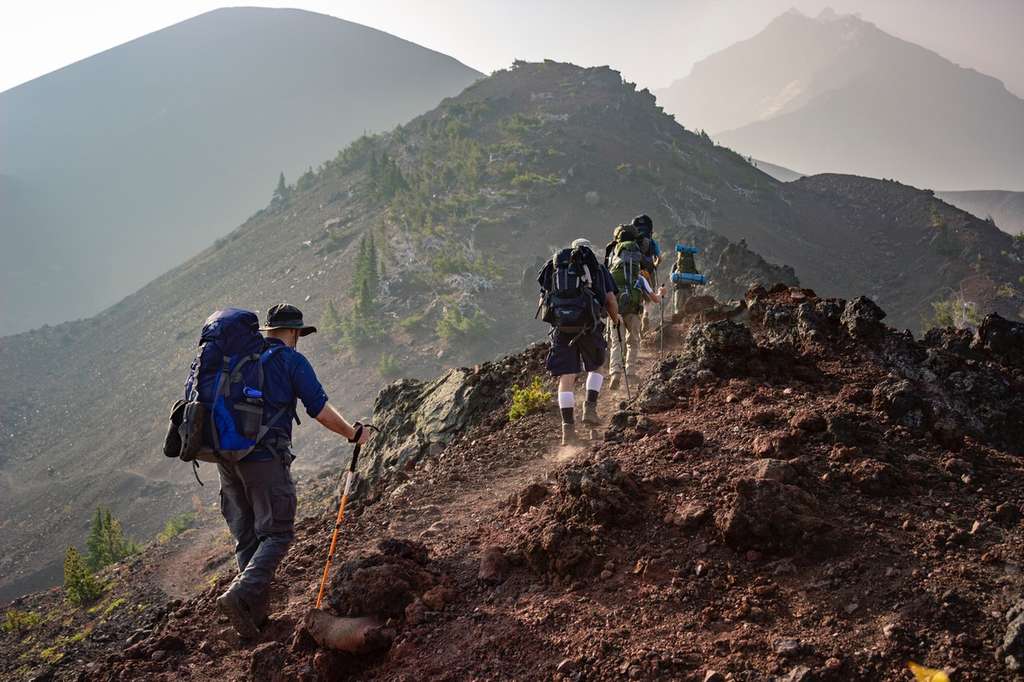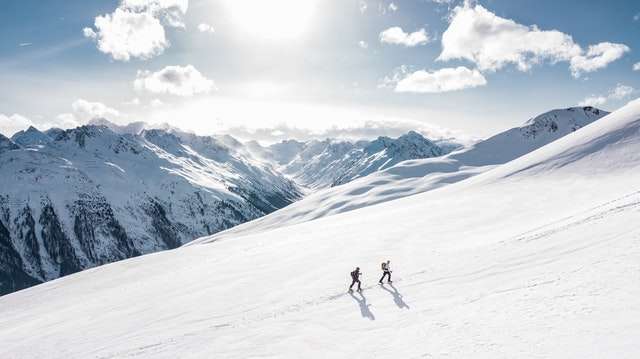Very friendly and super helpful with any questions I had. Very clean and calm atmosphere, all the staff were kind.
Read More
What is Altitude Sickness?
Posted: Jul 21st, 2021 at 11:42AM

When people travel to a higher altitude too quickly, either through climbing or being transported, they can develop uncomfortable feelings such as nausea and light-headedness. At worst or when left unattended, it can escalate to serious and even life-threatening complications. So, understanding what altitude sickness is and how to prevent it is very important.
Let's get into all the details.
First, What is Altitude Sickness, Exactly?
Altitude sickness is a condition that occurs when people ascend 8,000 feet or higher too fast, due to the lack of oxygen in the surrounding air at that elevation.
According to Harvard Health, people can live at moderately high altitudes, but your body must take time to make those adjustments. Moving from one elevation to another too quickly can be dangerous.
Anyone can experience altitude sickness. Studies show that people who are pregnant, have existing heart or lung conditions, have a history of altitude sickness, or live at low elevations are at greater risk of experiencing the condition. Likewise, if you ascend elevation too rapidly (more than 1,600 feet per day), your risk also increases.
Generally, altitude sickness can be categorized into three groups: Acute Mountain Sickness (AMS), High Altitude Cerebral Edema (HACE), or High Altitude Pulmonary Edema (HAPE).
Most people experience AMS, typically the least life-threatening form of altitude sickness. It's characterized by dizziness, headache, fatigue, and nausea. On the moderate to severe end of AMS, you might experience difficulties with coordination and shortness of breath that can interfere with your activities.
HACE occurs when the brain accumulates excess fluid and swells up, impairing its ability to function normally. With this type of altitude sickness, you may experience confusion, coordination problems, exhaustion, or loss of control. Some may also experience a decline or loss of consciousness, seizures, and possibly death.
Lastly, HAPE can be a result of the body's reaction to HACE, wherein excess fluid enters the lungs. However, HAPE can occur independently of HACE. This altitude sickness leads to breathlessness even when resting, difficulties in breathing, non-productive cough, lethargy, and physical weakness.
The Causes of Altitude Sickness
The leading causes of altitude sickness are ascending to greater heights too rapidly or staying at high elevations for a prolonged period.
Air pressure is significantly lower at higher altitudes. This means the air is dense and oxygen molecules are reduced. If a person takes in limited oxygen, their heart and lungs work double-time, thus increasing their breathing rate and pulse. In effect, the body creates more red blood cells to carry more oxygen.
In addition, climbing to higher altitudes is accompanied by changes in the environment, such as low temperatures, a drop in barometric pressure, and ambient humidity that the body may not be accustomed to. Ultimately, it takes significant time to adjust and survive comfortably at that level of altitude.
The Signs and Symptoms of Altitude Sickness
Symptoms can vary widely depending on the severity of altitude sickness you're experiencing.
Mild to moderate (short-term) symptoms include:<
- Difficulty doing basic activities (e.g. walking, coordination)
- Dizziness
- Headache
- Insomnia and other sleep problems
- Lassitude (mental and physical fatigue)
- Loss of appetite
- Nausea
- Overall weakness
- Shortness of breath
- Unusually fast heart rate
- Vomiting
Severe symptoms are closely similar to moderate ones but at a higher intensity. These include:
- Abnormal changes in skin color (e.g., blue, gray, purple, or paler than normal)
- Chest tightness and congestion
- Confusion
- Continuous coughing
- Double vision
- Inability to walk
- A pins and needles sensation
- Shortness of breath even when resting
- Swelling of the face, feet, and hands
Signs of HACE include changes in consciousness, coordination, hallucinations, increased vomiting, memory loss, numbness, and persistent headache.

On the other hand, HAPE signs include cyanosis (the nails or skin turn blue), feelings of suffocation, fever, irrational behaviors, panting, and persistent cough with unusual fluid.
If you notice any of these signs, be sure to get to a lower altitude a soon as possible. It's also crucial to seek medical attention right away.
Altitude Sickness Treatment and Prevention
The primary treatment for altitude sickness is to move to a lower altitude. If this is not possible, it's best to stay put on your current level and not attempt to go any higher. There are also different treatments depending on the type and severity of one's altitude sickness.
Taking the right meds can help alleviate the symptoms brought by altitude sickness. For mild to moderate AMS, non-steroidal anti-inflammatory drugs help alleviate headaches. Other medications are available to assist with preventing AMS as well as medications to help treat some of the severe symptoms associated with HACE and HAPE. It is recommended to speak with a medical professional who specializes in travel medicine prior to traveling to high elevations for guidance on available treatments for HACE and HAPE.
Other treatments can include:
- Lung inhaler or respirator
- Portable hyperbaric chamber to increase oxygen pressure
- Pulmonary vasodilator to encourage blood flow and gas exchange
- Oxygen provision via a concentrator or tank, often provided by physicians at mountain resorts
Prevention is always better than cure. And one of the most effective ways to prevent altitude sickness is to climb or elevate at a comfortable pace, known as acclimatization. This gives your body ample time to adjust to the changing oxygen levels. For example, consider spending a couple of hours (or a day, even) at a midway point before continuing to ascend.
Other precautions to minimize altitude sickness include:
- Avoiding smoke or alcohol before the climb
- Consuming high-calorie, healthy carbs (e.g., whole grains)
- Increasing water intake
- Resting in between climbing
- Sleeping at lower elevations
- Taking prescription medication
It's also important that you talk to your doctor or healthcare provider before your trip. They should be able to recommend the right medication and advise on best practices that will help prevent altitude sickness and its side effects.
Anyone can experience the signs and symptoms of altitude sickness. Some may even begin to feel it at altitudes lower than 8,000 feet. And if it's not addressed properly, it can be life-threatening.
That's why it's vital to see a travel medicine expert before your trip.
At e7 Health, we help travelers reduce the risk of altitude sickness and its potential side effects. Our team of travel medicine clinicians can provide an altitude sickness prescription based on your medical history. We also offer counseling tailor-fit for your specific travel itinerary.
This helps to limit and prevent the underlying effects of altitude sickness and ensure that you remain safe and healthy throughout your travels.
Have an upcoming trip? Contact e7 Health today to learn more about altitude sickness or book your appointment online.

I came to E7 health for a physical exam for employment. Staff was very professional, And I was in and out in thirty minutes
Read More
Staff was extremely friendly, I was able to walk in without an appointment.
Read More
Very friendly, informative, and well versed. Felt well taken care of by the doctor and all the staff. Fast, friendly, considerate, all staff met.
Read More
I was here for an employment physical. They are amazing! I was in and out in less than 10 mins.
Read More
J was super helpful. Very quick and easy.
Read More
Rachel was amazing and I was in and out so quick ! Ready to start my new job ! Thanks 🥰
Read More
J was awesome at talking me through my first time getting blood taken. The doctor that also did my physical was quick and very thorough when letting me know the next steps for getting the test results back :)
Read More
















